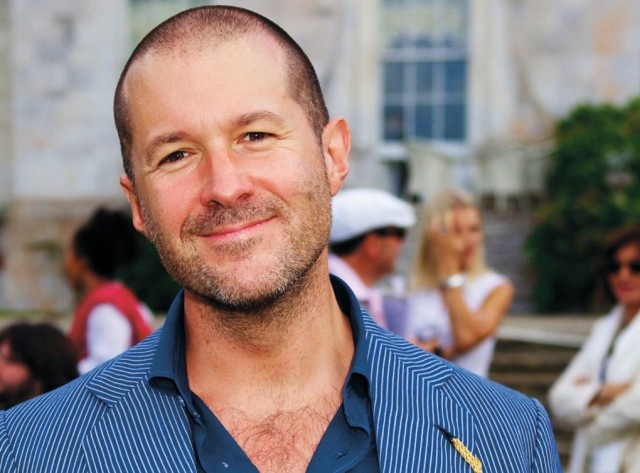As the news about Jony Ive leaving Apple sinks in, you’ll be seeing a lot of people weighing in on what the Ive era of Apple meant and what’s next. That’s all for the good, because Ive was remarkably influential — a singular person who drove the design not just for Apple’s products, but for the industry at large. The only person who could claim the same level of both fame and influence was Steve Jobs himself.
It’s annoying to keep using the word “era,” but that’s the word. It sounds unnecessarily portentous for talking about designing computers, but it’s appropriate to the scale of this turnover. So, with Ive leaving, I’ll join in and say this: the era of the singular genius at Apple is over.
The truth is, it’s been over for some time. I would like you to take a look at this remarkable quote Tim Cook gave to the Financial Times, meant to assuage those who will argue that Apple is in serious trouble without Ive:
“The company runs very much horizontally,” said Mr Cook. “The reason it’s probably not so clear about who [sets product strategy] is that the most important decisions, there are several people involved in it, by the nature of how we operate.”
There’s a much more pithy phrase for what Cook is talking about. It’s the phrase for when decisions are made by a consensus from a group instead of by one sole person. That phrase is, of course, “design by committee.”
It’s a damning phrase, so it’s no wonder that Cook avoided it. But make no mistake, that’s what he’s referring to here. It’s a scary thing to consider for Apple, because so much of our idea of what the company is and what it means has been tied up with the idea of a singular genius.
The singular genius is the mythos of how Apple was founded and how it became the global giant it is today. And I don’t mean “genius” just as “very smart,” but as the Romantic Genius — the person who is in touch with the sublime in a way the rest of us cannot understand. That version of “genius” still lives with us today and — like many potent concepts — turns out to be more of a social invention buttressed by technology (the need to assign value to copyrighted works) than some innate human divinity.
While Apple might have a good story about having been founded in a garage, the true founding myth of Apple is the myth of genius. You know the fable, which has the benefit of also being true. When Steve Jobs was in charge, Apple made amazing things: the Apple computer, the Mac. Jobs not in charge: the very bad ‘90s with Scully and the Newton. Jobs back in charge: the renaissance, the iPod, the iPhone.
After Steve Jobs, that mantle was passed to Jony Ive. And he quietly (quite literally) took it. It was important to our concept of Apple that there be a single, discerning decision maker. Somebody uncompromising about quality. Somebody with very good taste. A capital G Genius.
The genius is the opposite of the committee. John Gruber very correctly points out that it is deeply weird that the two people tapped as Ive’s successors report to the Chief Operating Officer. I agree, but mainly because it’s deeply weird at Apple.
There are two big changes to pick apart. First, there are two people replacing Ive, not one. And second: they report to the COO, not directly to Tim Cook. That is precisely the opposite of how Steve Jobs had set up Jony Ive at Apple. Here’s how Jobs himself described Ive’s role:
He’s not just a designer. That’s why he works directly for me. He has more operational power than anyone else at Apple except me. There’s no one who can tell him what to do, or to butt out. That’s the way I set it up.
Compare that quote about Ive to the earlier one from Cook about how product decisions are made. The difference is stark! Cook’s vision is not how we imagine Apple operates. As Gruber succinctly put it: “I don’t worry that Apple is in trouble because Jony Ive is leaving; I worry that Apple is in trouble because he’s not being replaced.”
It’s far too early to know whether that level of worry is warranted. I do know that it comes from a real place — it’s a place where I also sit. From here, it looks like Apple has lost a step when it comes to design leadership. There are the easy dunks you can make on some of Apple’s products like the first Apple Pencil, the iPhone battery case, and the iPad Smart Keyboard. But there are much more fundamental worries about the MacBook’s keyboard, the length of time it took to recover from the “trashcan” Mac Pro, and the weirdly unergonomic Apple TV remote.
The thing about those missteps is we don’t know their cause. One way of thinking about them is that they stem from a lack of product focus — there’s no genius sending things back to the drawing board when they’re not good enough. Another, though, is that they stem from too much focus — focus on form over function, on making things thin and beautiful instead of making things usable.
In that framework, the problem was either that Jony Ive wasn’t paying attention or that he had too much power and misused it. That’s how the thinking goes, because our thinking about Apple has been defined by trusting in the taste of a singular genius, because design by committee is obviously worse than that.
The reality is that boiling down Apple’s design to those two contradictory explanations is reductive. Apple’s product strategy is not dictated by a single person anymore — and I wonder just how much even Ive drove it, especially in the last couple of years. Multiple stories — including this one from Bloomberg — suggest Ive hasn’t been as engaged as he once was.
Even though Ive is leaving, he’s still going to be around. More importantly, the team he led isn’t going anywhere and isn’t suddenly going to change their entire design philosophy overnight. At the very least, Apple designs products years in advance, so Ive’s designs are going to be with us for a little bit longer.
Nevertheless, his departure will have real consequences. The first consequence isn’t Apple’s problem, it’s ours: we should stop thinking of Apple as the singular expression of one person’s genius. History has moved beyond the Great Man theory, and so too should our ideas about how Apple operates.
When I look at some of the design decisions Apple has been making in both its hardware and software, the only word that comes to mind is “uncompromising.” That’s a virtue when it applies to a leader who is paying attention to quality, but it can be a vice when it applies to products that need to be used by messy, messy humans.
Committees are a pain, they’re not as mythic as a singular genius, they’re often more timid than they should be. But maybe what Apple design needs right now is a little less mythos and a little more compromise.
Let's block ads! (Why?)
https://www.theverge.com/2019/6/28/18870887/apple-jony-ive-design-genius-committee
2019-06-28 12:00:00Z
52780322343844








